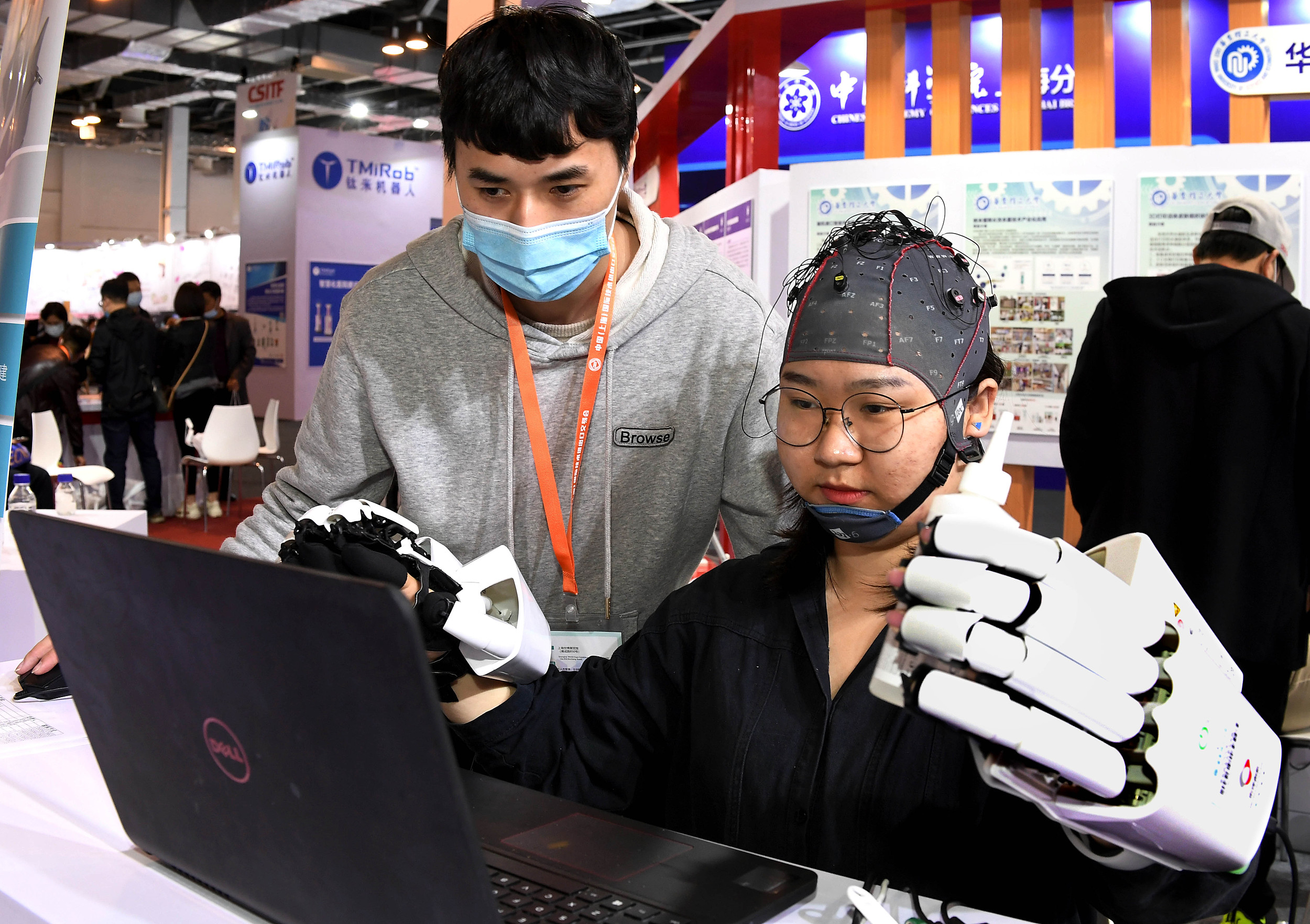Regulating BCI for Common Good

A person tries the brain-computer interface device. (PHOTO: VCG)
By CHEN Chunyou
In 2022, NPC deputy Yao Dezhong, a professor at the University of Electronic Science and Technology of China proposed enriching brain-computer interaction to delay the process of Alzheimer's disease.
In recent years, brain-computer interface (BCI) technology, which creates information channels between the brain and external devices, enabling direct information interaction, has become a hot technology.
R&D in BCI technology gets strong support from the central department, which we can see from the series of guidelines issued to support future industries.
Its application mainly includes medical health, communication and entertainment, particularly improving motor and perceptual functions for patients with neurological disabilities.
The latest breakthrough in China was made in February by a joint research team led by Jia Wang, a professor at the Beijing Tiantan Hospital affiliated with China's Capital Medical University, and Tsinghua University Professor Hong Bo. They managed to use a minimally invasive BCI to help a patient with high paraplegia move a computer cursor with thoughts.
This technology brings hope for people with disability and neurological diseases. However, it also raises ethical questions about the risks and caution should be exercised for its commercial use.
The Ministry of Science and Technology released a document in February 2024, which emphasizes that the research should primarily focus on restorative BCI technology and meet people's health needs. For non-medical purposes such as attention, sleep or memory regulation and other augmentative BCI, exploration and development should be conducted under strict standards and clear benefits.
The development of any new technology has its risks and hidden dangers. But to promote the progress of science and technology and make it benefit the people, the good side of science and technology and research ethics should always be emphasized, no matter where science and technology develops.







